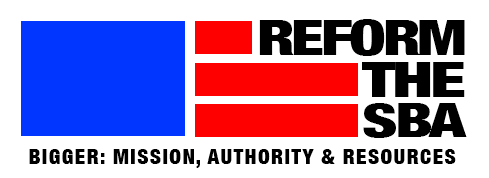Forbes
Feb 26, 2021
How To Level The Financial Playing Field For Women- And Minority-Owned Businesses
By Kerri Thurston
The Covid-19 pandemic and its economic aftermath have harmed companies of all sizes. Tens of thousands of small to medium-sized businesses in the United States have permanently closed. Thousands more are on the verge of running out of much-needed cash.
It’s troubling to me that a disproportionate number of those affected businesses are owned by women and minorities. A study by the U.S. Chamber of Commerce found women business owners are less optimistic than their male counterparts about their companies’ ability to bounce back from the pandemic. And the economic turmoil of 2020 was even more devastating for minority-owned businesses. From February to April 2020, there was a 41% drop in the number of Black-owned businesses and a 32% dip in Latino-owned businesses, compared to a 17% decline in white-owned businesses.
What’s the reason for these staggering numbers and lack of optimism? We have a financial system that continues to fall short in creating growth opportunities for women- and minority-owned businesses. That lack of opportunity is especially harmful in times of crisis.
As a CFO who works for a company that provides working capital solutions for small and medium-sized businesses, I know many women and minority entrepreneurs who have managed to build their businesses, brick by brick, despite being turned down for loans multiple times. Think how much faster they could grow their companies with just a little more support from the financial system?
While the pandemic and the social movements of 2020 have sparked many efforts among the government and banks to even the financial playing field for all businesses, the fact remains that if you’re a white male entrepreneur, you’re more likely to secure financing for your business than if you are a woman or a minority.
Fortunately, the pandemic could be a turning point for our financial system. Here are some reasons that give me hope that women- and minority-owned businesses will have more equitable financial opportunities in the coming years:
Recognizing The Problem
Public outrage in the U.S. over the killing of George Floyd and other incidents of police brutality has led to a reexamination of inequality and bias in all of our institutions. That has included finance, where major banks and other lenders have launched ambitious efforts in recent months to help communities address economic and racial inequality.
While most of these initiatives are aimed at helping Black-owned businesses, the social movements of 2020 bring hope that all businesses that are underfunded and underrepresented in today’s economy may have more opportunities in the future to generate the capital they need.
Including More Diversity
Research has shown that companies that make an effort to add diverse backgrounds and perspectives to their teams typically generate higher revenue. So it stands to reason that if financial institutions add more top-to-bottom diversity, particularly among loan officers, in the C-suite and on the board of directors, the businesses they fund will become a more diverse cross-section of the population, as well.
Rethinking how institutions measure creditworthiness among borrowers can also provide more opportunities for women- and minority-owned businesses. For example, a recent report from Northwestern University’s Kellogg School of Management suggests that, instead of focusing on credit scores and available credit limits for determining loan eligibility, banks could turn more attention to applicants’ credit and payment histories.
Embracing Alternative Finance
Beyond traditional lenders, there are other financial tools available today to help entrepreneurs generate more liquidity for their businesses. Women and minority business owners can utilize instruments such as asset-based lending, short-term business loans and early payment to address cash flow gaps and position their companies for growth.
In a financial system where women and minorities still face longer odds in securing credit, it’s crucial for them to understand what other options are available to help them to raise the capital needed to grow their businesses.
Signs Of Progress
Institutional changes in finance and other industries are not going to happen overnight. However, the cultural shifts of 2020 bring me great hope that lasting diversity and inclusion has begun.
That’s good news for all small businesses that are underfunded in today’s market. The changes we make today can create more opportunities for them to grow, as well as endure the next economic downturn.
